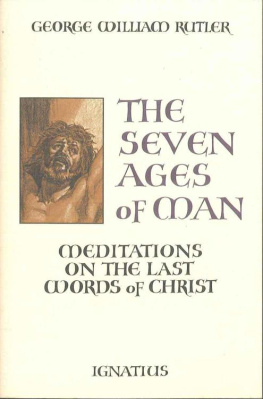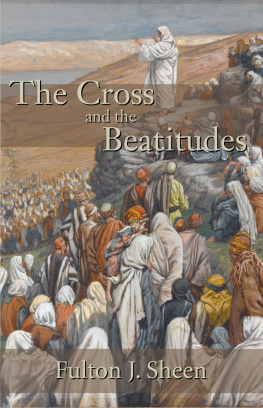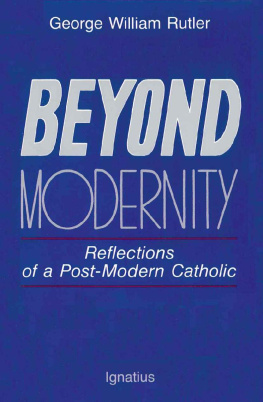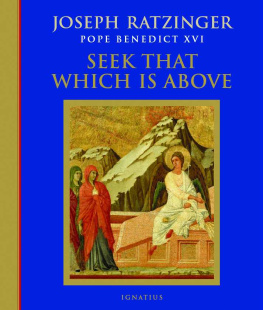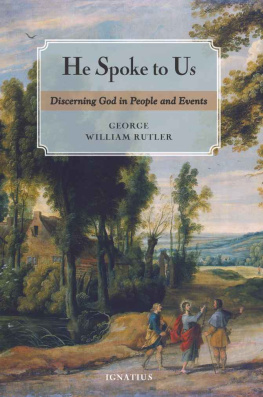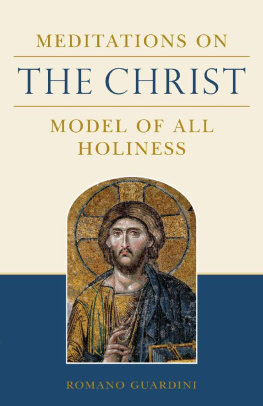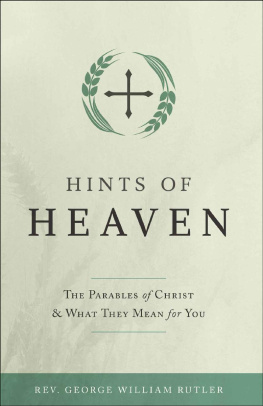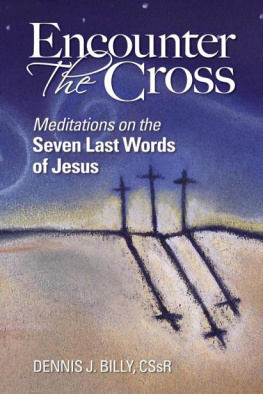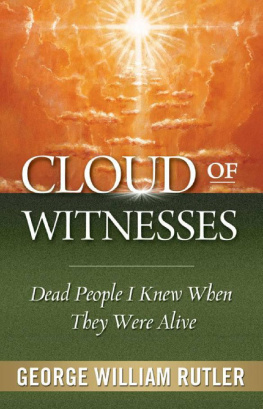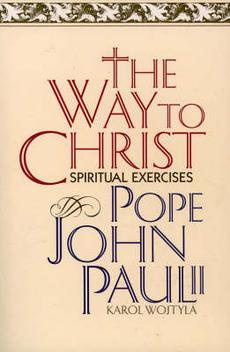GEORGE WILLIAM RUTLER
THE SEVEN AGES OF MAN
Meditations on the Last Words of Christ
IGNATIUS PRESS SAN FRANCISCO
Calligraphy by Joan McGrady-Beach
Cover art by Christopher J. Pellicano
With ecclesiastical approval
1991 Ignatius Press, San Francisco
All rights reserved
ISBN 978-0-89870-361-0 (PB)
ISBN 978-1-68149-002-1 (E)
Library of Congress catalogue number 90-85101
Printed in the United States of America
CONTENTS
All the worlds a stage,
And all the men and women merely players:
They have their exits and their entrances;
And one man in his time plays many parts,
His acts being seven ages. At first, the infant,
Mewling and puking in the nurses arms.
Then, the whining schoolboy, with his satchel,
And shining morning face, creeping like a snail
Unwillingly to school. And then, the lover,
Sighing like a furnace, with a woeful ballad
Made to his mistress eyebrow. Then, a soldier,
Full of strange oaths, and bearded like the pard,
Jealous in honour, sudden and quick in quarrel,
Seeking the bubble reputation
Even in the cannons mouth. And then, the justice,
In fair round belly, with good capon lind,
With eyes severe, and beard of formal cut,
Full of wise saws and modern instances;
And so he plays his part. The sixth age shifts
Into the lean and slipperd pantaloon,
With spectacles on nose, and pouch on side;
His youthful hose well savd, a world too wide
For his shrunk shank; and his big manly voice,
Turning again toward childish treble, pipes
And whistles in his sound. Last scene of all,
That ends this strange eventful history,
Is second childishness, and mere oblivion;
Sans teeth, sans eyes, sans taste, sans everything.
As You Like It
CHAPTER ONE
INFANCY
Father, forgive them, for they know not what they do .
Accomplices in Creation
T O BE STILL for any length of time is a test, and what may seem to be taxed patience could just be evidence of vitality; for though the splendid fact comes to be taken for granted, we are alive. Nothing alive is fixed and unchanging. Patience would not be a virtue were it inertia, and tranquility is a spiritual good when it is not decay. There is no virtue in the stillness of a corpse; corpses are just dead. By neglect of this not unobvious fact, one novelist got attention in the world of letters, and from theologians, with his sentence: The dead sea was alive with corpses.
As every really living thing is not only moved but moves other things and is ordered to an end however you want to define it, life is in dramatic tension. When you put that drama in ample greasepaint and seedy declamations, you get melodrama where the figure on stage cries, Curtains! and collapses with a satisfying thud. But in the unaffected play of ordinary existence some sort of physical curtain does indeed come down eventually; and so does a moral curtain descend, for man is soul as well as body.
As a moral fact, boredom is thirst for drama and the simple longing to be an accomplice in creation. Dramas have plots; and life, as the definitive drama, is the essential and gratuitous plot from which manufactured plans and schemes flow. God alone knows the full plot by the Creators ability to see it all at once: thus God does not have the theological virtue of faith, if only because he does not need it. He is not theological in any way because he is Theos and he is Logos, and so too he who is the hope of the world does not have the theological virtue of hope. It does not follow from this that his world is hopeless; it does mean that he has no hope for the world precisely because he is its hope. The world could be hopeless only if it were godless. Of course the world may act as though it were godless, but this is only bad acting; its true nature consists in its being a creation of God, and the dramatic tension within worldliness consists in the coexistence of creatureliness and the denial of a Creator. This at least may be said: human intelligence has some partial knowledge of what has happenedthat forms history; and because the script continues, the human mind also envisions a future. As a specimen is put under the microscope for examination and analysis, representative human acts are put on stages, their drama stretched out or dramatized for the scrutiny of those, that is, all of us, who are temporal agents of Gods eternal design.
The worth of a play depends on its subject, but no subject is quite worthy of attention if it does not refer, in one or another way, to the higher principles of life, and these in turn are higher than the lower concerns of existence according to their connection with God. This does not have to be self-conscious, and it is probably best to avoid aiming at grandeur or else we will end up with those pageants of vague religiosity and overreaching attempts at portentousness based on feelings that fizzle out when the nice weather changes or you run out of caffeine. Feel Good religion is not much of a religion, and nothing calls its bluff more quickly than feeling bad. God did not become man to make us feel good or even to improve us; his whole purpose was to save us from sin and death so that we might have eternal life. One of the prejudices that make this a difficult object of assent is the notion of perfection as a form of psychological conditioning, a correction of manners, and Christ censures this from the start:... you clean the outside of the cup and of the plate, but inside they are full of extortion and rapacity (Mt 23:25). Perfection is far more violent and transforming than that; it does not reshape life so much as it gives new life. How this happens without changing identity is a grand mystery, but it does happen, and the saints are there to show how it happens.
Some saints are great reformers, and some have been quite removed from the market of deeds and ideas, but the concept of spirituality without social consequence is of course idle pietism. It obtains in some religions, like Hinduism, which are older than Christianity, and indeed the Judaic social consciousness is exceptional among pre-Christian forms; but love as a social virtue becomes almost synonymous with the very concept of religion after Christ. Its application becomes aberrant in Christian spirituality principally because of the doctrine of salvation by faith alone. If there is to be any salvation, it will not be by the assent of faith alone (Martin Luther added the exclusive qualifier and so got it wrong). It will come by the fullness of faith manifest in good works, which are the effective evidence of saving grace.
At the same time there is the other, not contradictory, truth: works without faith are just monochrome busyness. Unchecked, this produces the religious fidget full of abstract responsibilities, an annoyance who blurs the line between inspiration and neurosis, seeking to do good through a dozen committees and schemes as a sublimation of personal inadequacy or untested virtue; no one is surer to convert sensible people to irreligion and to make the Christian drama a pantomime. And this is just what comes from the mental mosaic of Christ as a reformer but not a redeemer. The Bleeding Heart on the cross saves us from much, and that includes the lesser bleeding heart reformer who would scrub us up through some human collective action. Probably most people who make that mistake do not even realize that there is a difference, nor can it be realized without acknowledging the existence of sin. If the world is only bent out of shape you only have to bend it back, which the Red Cross can do as well as the redder cross of Christ; but if it is broken it has to be completely repaired. Reform bends, redemption replaces, and only God, who is not part of the fracture, has the leverage in eternity to fix it in time.
Next page
